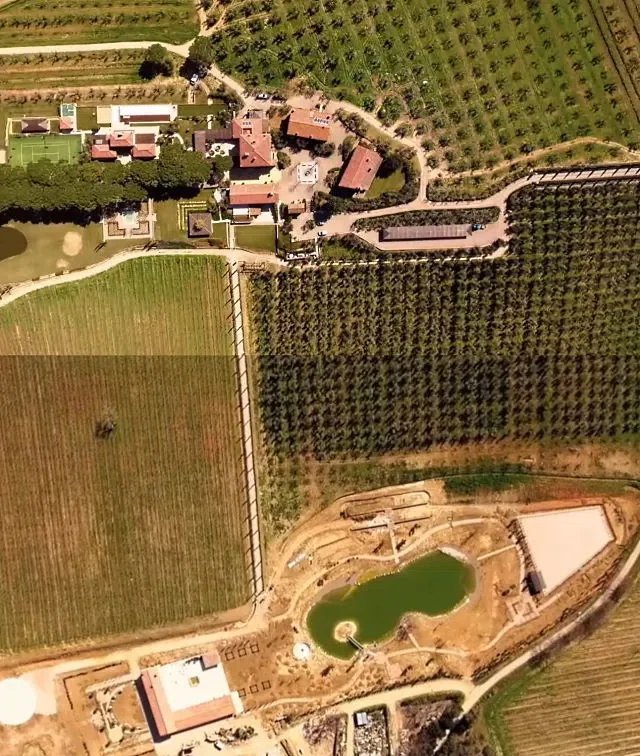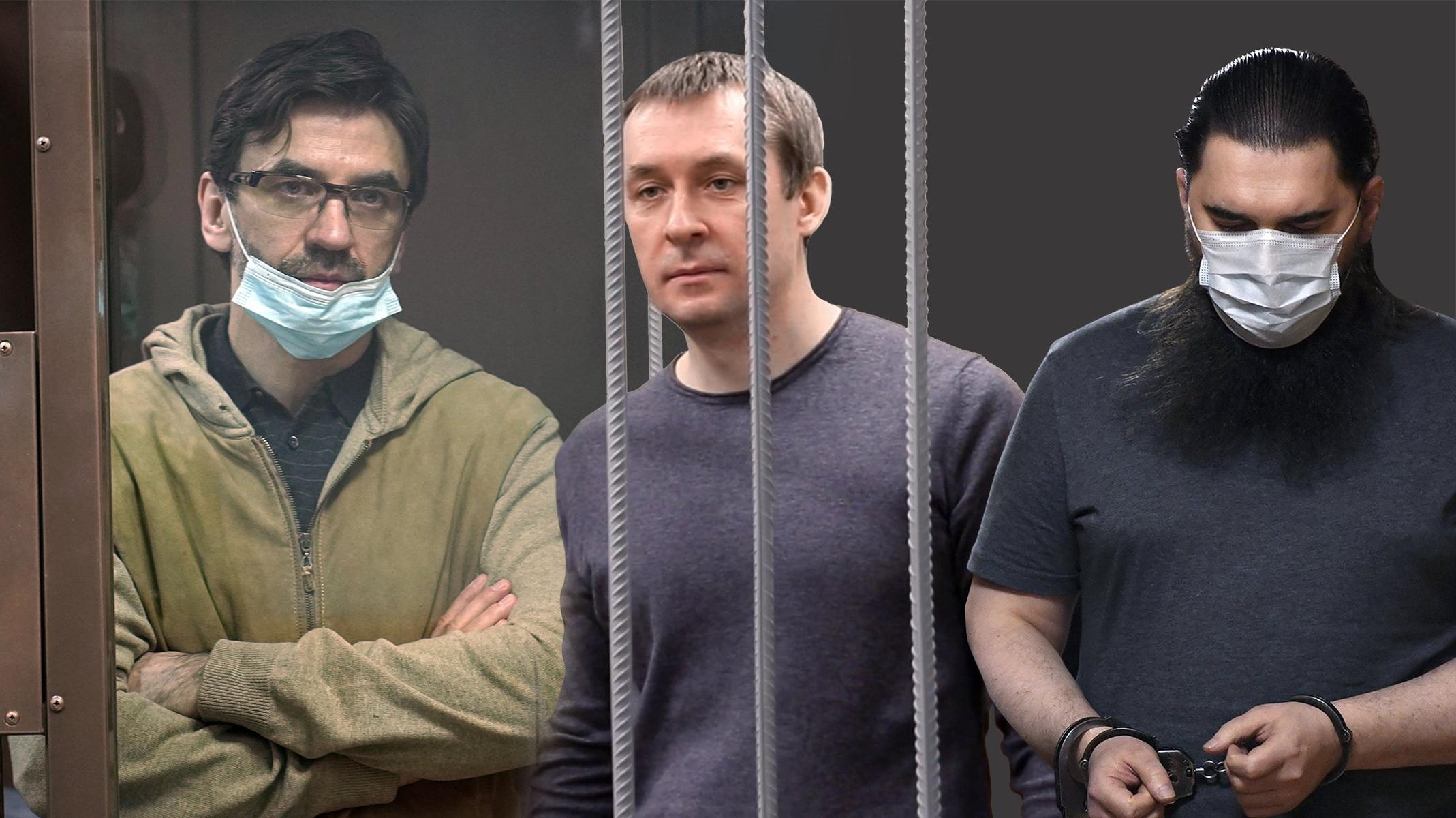This spring is the time of proceedings on the high-profile criminal cases featuring astronomical amounts of money belonging to security and government officials turned into the government revenue.
Dmitry Zakharchenko, ex-colonel of the Ministry of Internal Affairs has already heard the sentence: 13 years of prison and 113 million rubles fine. Earlier, the treasury was replenished with property worth more than 9 billion rubles. Apart from the cash, with which the apartments of the colonel and his relatives were stuffed, there were 27 apartments, two Rolls-Royce cars, two Mercedes cars and a half-kilogram bar of gold.
The trial of Kirill Cherkalin, Colonel of the Federal Security Service, is still underway, but cash and valuables in the amount of 6.3 billion rubles have already been turned into the government revenue. Yet, Cherkalin admitted that the money, apartments, cars, necklace, pendants, expensive bags and even the studs were received from “sources not foreseen by the law”.
Mikhail Abyzov, the former Minister for Open Government is under investigation. But on the suit of the General Prosecutor's Office, 32 billion rubles have already been seized from him, which, according to the court decision, were received in violation of the anti-corruption laws. It is obvious, that the civil "minister without portfolio" surpassed both security officials combined by two-fold.
However, unlike Cherkalin, Abyzov did not agree with the decision of the court and filed an appeal, which was considered at the Moscow City Court just on Friday. The decision was upheld.
The Novaya Gazeta studied the political and business activity of Mikhail Abyzov in detail; and the stance of the Prosecutor General's Office intersects with our publications in many respects. By the way, as early as 2019, Andrey Sukhotin saw the beginning of a big campaign in the arrest of the ex-minister (see No.44 of April 22). After all, the man behind the bars was a man who earned his first fortune in the era of structural transformations of the 90’s under Anatoly Chubays and became overgrown with new capitals in the 2000’s under Dmitry Medvedev. By this arrest, the authorities showed that they were preparing a certain kind of revision of the "outcome of the nineties." And one of the important applied goals of such a revision is the expropriation of offshore billions.
In this sense, Abyzov's case is more illustrative than that of Zakharchenko and Cherkalin. After all, they kept all the money in Russia, and most of the ex-minister’s money was taken back from offshore accounts. The security officials may be stealing, but they love the Motherland dearly.
Another political message is this: billionaires in the government are the mistake of Dmitry Medvedev's "liberal" period.
Indeed, Abyzov was a defiantly rich official. Already by the time of joining the government of Dmitry Medvedev, he possessed a fortune of $ 1.3 billion (according to Forbes). Notably, Abyzov's income had been basically only growing for all the six years: the record was set in 2016 — more than half a billion rubles. He explained such amounts by payment of dividends by companies, which he, as a responsible official, allegedly transferred in trust. Abyzov transferred his ministerial salary to charity.
The investigators and the Prosecutor General's Office believe that from 2011 to 2014 the former minister withdrew 4 billion rubles from SibGenCo and Regional Power Engineering Company, which he owned with the help of proxy persons through Blacksiris offshore company controlled by him. Right after that, the electricity tariff in the Novosibirsk region grew by 15%, and this led to social unrest, at the instigation of Alexey Navalny on top of that.
After leaving the government to come back to business, Abyzov sold SibGenCo exactly for those 32 billion rubles that were turned into the government revenue. As specified in the suit of the Prosecutor General's Office, Abyzov negotiated the sale with his longtime acquaintance Andrey Melnichenko as far back as 2017 while he was occupying the ministerial chair (and realizing that he would lose it soon). Earlier, the Prosecutor General's Office stated that Abyzov, during his tenure in the government, was the beneficiary of about 70 companies in Estonia.
This is the very instance when the positions of the Russian security officials and international investigative journalists coincide. According to them, more than $ 800 million were transferred through the network of internal offshore companies in the Estonian branch of Swedbank (see details in the article “Minister with a Thick Portfolio”, No.130 of November 20, 2019).
In February 2019, Swedbank found itself at the center of a money laundering scandal. According to SVT journalists, more than 135 billion euros of non-residents, mostly Russian clients, passed through its Estonian wing from 2008 to 2018. Erling Grimstad, a Norwegian anti-money laundering expert, admitted that some bank employees helped their clients commit financial fraud in their interest: Abyzov turned out to be just one of such clients, through whose accounts $ 860 million passed, with $ 770 million withdrawn from the Russian jurisdiction.
One of the bank's client managers, by the name of Alexey Everson, was revealed to have a PIN calculator — this device helps manage client accounts remotely. Everson used this calculator to withdraw money from Abyzov's account. Then he quit from the bank and suddenly appeared in a high position at the firm that was directly connected with the Russian minister. Of course, Everson, and Abyzov as well, denied everything: in the opinion of the former minister, such investigations and the arguments of the investigation were only an attempt to push on him in order to knock out testimony against other important people, and also to secure the arrest of his foreign property. And there is a lot of property there: one villa in Italy was estimated at 20.6 million euros.
Поддержите
нашу работу!
Нажимая кнопку «Стать соучастником»,
я принимаю условия и подтверждаю свое гражданство РФ
Если у вас есть вопросы, пишите [email protected] или звоните:
+7 (929) 612-03-68
A joint investigation by the Novaya, the Organized Crime and Corruption Research Project (OCCRP), Swedish public TV channel SVT and the Postimees, Estonian newspaper, showed that at least 38 out of 70 offshore companies in reports of Swedbank are linked to Russia, and a part of them were integrated into the main Abyzov's business group — RU-COM. Moreover, from 2012 to 2018, Abyzov's offshore companies participated, for example, in the purchase of shares of Elsib, Russia's largest heavy power engineering company. Minister Abyzov had no right to participate in this, not even indirectly, but he could not have known of the doings of his proxies.
There are also low-profile, but indicative episodes that allow to find a correlation between Abyzov's activities in the public office and the success of the business transferred by him in trust.
For example, the Minister of the Public Government also headed the public-private partnership council of the military and industrial commission under the Russian government. At the same time, Abyzov was not a stranger as a businessman: Industrial Technologies CJSC, where he is a co-owner, produces Orsis T-5000 rifles and modifications on their basis — VSK Tochnost 8.6 and VSK Tochnost 7.62. In 2017, these rifles were taken to adoption by the Federal Guards Service and the Federal Security Service. By the way, the armed forces refused Abyzov's rifles, citing the fact that some of their components were imported, and these parts could be replaced under the import substitution program.
Besides, Abyzov made a decent profit on venture capital investments — just during his office in the Public Government. He formally established BrightCapital venture fund in 2010. Then the future minister invested $ 300 million in the development of the fund. Yet until 2012, the fund's affairs were not going as well as Abyzov himself would desire. But as soon as he sat in the ministerial chair, the picture changed. The fund invested $ 200 million in 15 startups in Silicon Valley, and in 2019 one of them — Quantenna Communications, which builds semiconductor Wi-Fi solutions — was sold for more than a billion dollars. According to the rules of business, a fund that has invested in a company that has become a unicorn (that is, capitalization of which has exceeded $ 1 billion) receives hundreds of percent of the return on investment.
BrightCapital was not alone in investing in startups doing it together with state corporations. And Mikhail Abyzov was the coordinator of the joint innovation work of ministries and state corporations, the person “ensuring the interaction of federal authorities and development institutions”.
The Investigative Committee draws a direct parallel between the withdrawal of money from SibGenCo and purchase of two villas in Italy by Abyzov.

One of the villas is Il Tesoro (Treasure), with an area of 34.6 hectares with adjacent vineyards and an olive garden located near Massa Marittima town in the province of Grosseto in Tuscany, 15 km from the coast of the Ligurian Sea. We learned this all from the investigation of Alexey Navalny. Not everybody knows that Abyzov was remembered in Massa Marittima because in 2013 he held a huge feast right in the central square of the town on the occasion of his son's wedding. In his Moscow life, Minister Abyzov could wear a cheap brand watches for the sake of appearance — and in Italy, a personal helicopter would fly businessman Abyzov to a neighboring town for a cup of coffee.
According to media reports, Abyzov gave villa to his son when the son reached adulthood. But the ignoring of the Italian laws let down the minister. Such villas are purchased for agricultural activities — cultivation of the mentioned vineyards or, say, olives. However, nothing like this happened on the lands belonging to Abyzov: he used the villa in Tuscany as his own residence, not forgetting, however, to enjoy all the benefits that were granted to agricultural enterprises. In total, Abyzov has not paid 711 thousand euros of taxes to the Italian budget since 2011, so the Italian court ordered to arrest all the accounts of the company that owns the villa. And the Investigative Committee, having conducted an assessment of its own, estimated the cost of the villas at 2 billion euros, and now intends to demand the arrest of all Abyzov's real estate in Italy.
